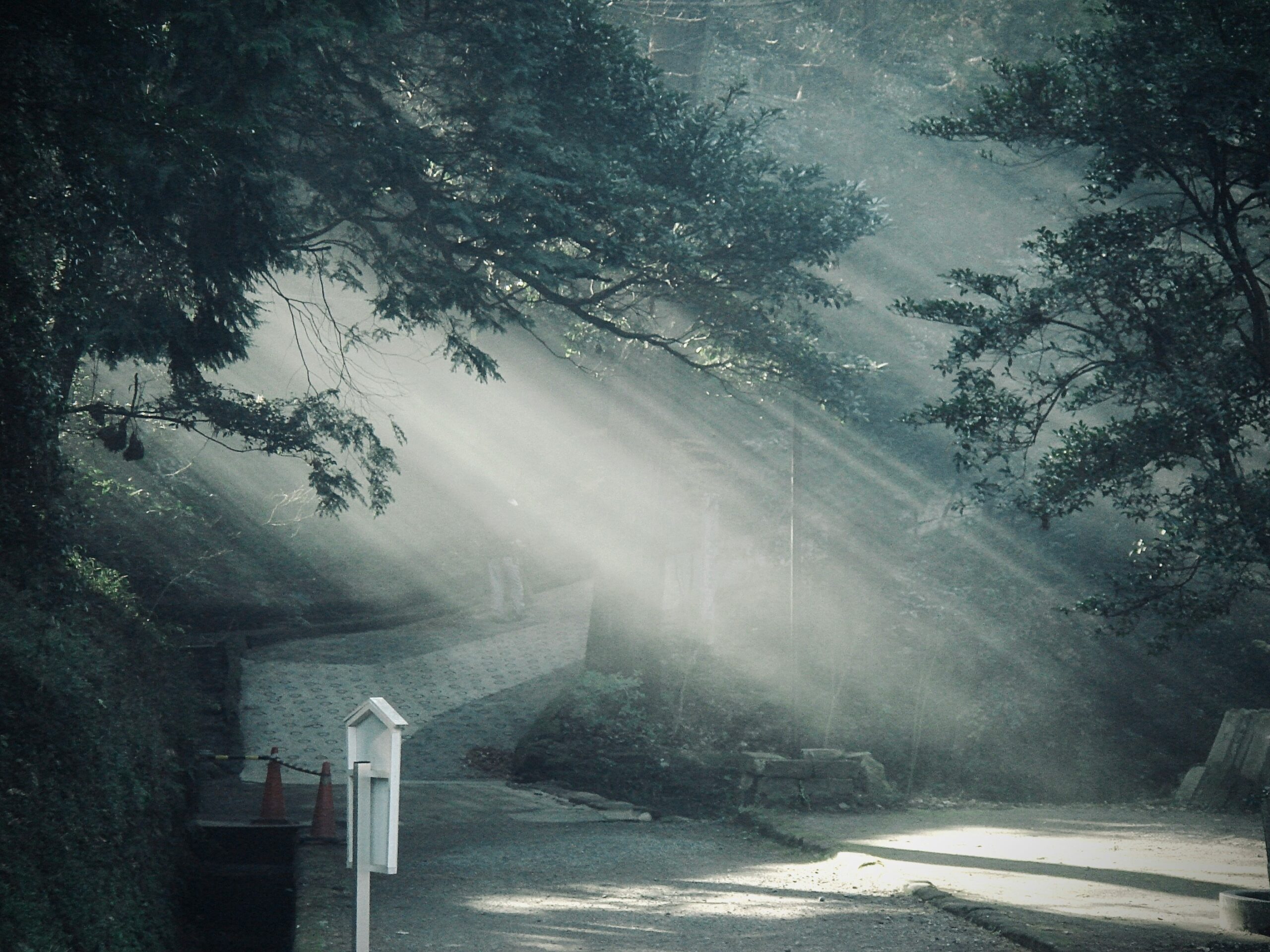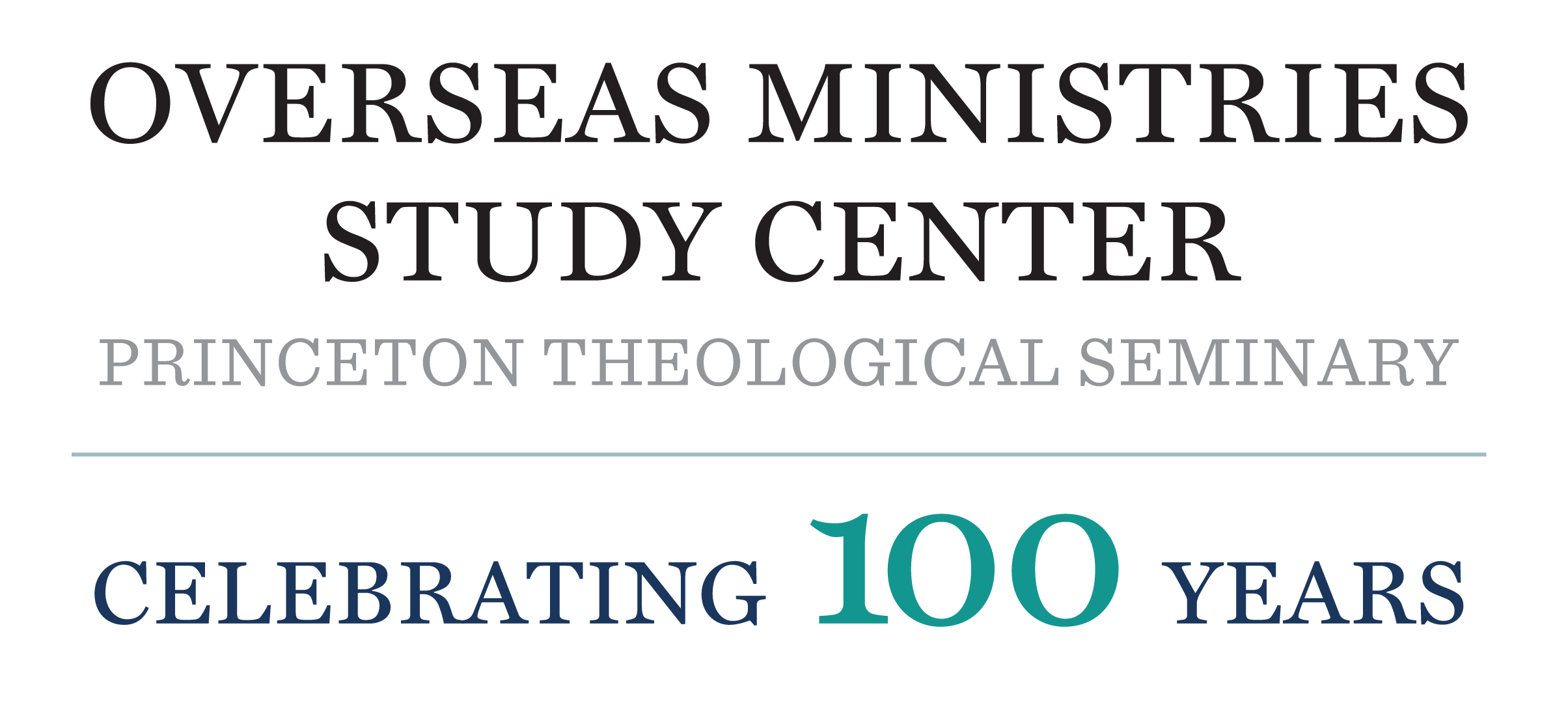By Yutaka Morishima – Aoyama Gakuin University, Japan.
 Dr. Yutaka Morishima is a professor and university chaplain at Aoyama Gakuin University in Japan and a visiting scholar at OMSC in Princeton Theological Seminary (2023-2024). The subject of his Ph.D. dissertation was the Atonement Theology of P.T. Forsyth. He has served as a Protestant church pastor in Nagasaki, where the atomic bomb was dropped. His recent research is on the ideological history of human rights, especially the formation process of a unique human rights concept in Asia. In particular, the use of terms such as “human rights” and “peace state” in political documents is demonstrated to support the concept of Japan’s national polity, shedding new light on the formation of modern imperial ideology.
Dr. Yutaka Morishima is a professor and university chaplain at Aoyama Gakuin University in Japan and a visiting scholar at OMSC in Princeton Theological Seminary (2023-2024). The subject of his Ph.D. dissertation was the Atonement Theology of P.T. Forsyth. He has served as a Protestant church pastor in Nagasaki, where the atomic bomb was dropped. His recent research is on the ideological history of human rights, especially the formation process of a unique human rights concept in Asia. In particular, the use of terms such as “human rights” and “peace state” in political documents is demonstrated to support the concept of Japan’s national polity, shedding new light on the formation of modern imperial ideology.
Editorial Introduction: For the next several weeks we will be publishing a series of essays by Dr. Yutaka Morishima who is an OMSC global partner this academic year. We wanted to feature this essay in four parts for its insight into the history of Japan and its relationship to Christianity. This is the second part of the series. You can read the part II here. In these essays, Dr. Morishima explores the onset of Christianity in Japan, the impact it had on Japanese society, and the way certain policies shaped the contours of the faith. We hope that you enjoy this exploration of how Christianity unfolded in this nation’s history and its consequences to the present. – Stephen Di Trolio, Managing Editor of The Occasional.
Over time, the Meiji government did allow Christianity, but it was wary of it for many years. The principal reason lies in Christianity’s connection to “the right of resistance.” Effectively, this meant that the Meiji government aimed at national unification through absolute obedience to the divine Emperor. However, Christians who followed God more than the monarch were feared because they had ideas that resisted the monarch’s orders.
One incident that symbolized this was the Urakami Yonban Kuzure, one of the biggest crackdowns on Christian churches in Urakami Village, Nagasaki. It started when one Christian believer rejected having a Buddhist burial. During the Edo period, Christianity was banned, and it was believed that Christians in Japan had become extinct. However, foreigners came with the country’s opening, and the church (Oura Cathedral) was built in designated foreign settlements. On April 12th, 1865, Japanese Christians who secretly kept their faith appeared before the missionaries, surprising the world. They began attending missionary churches, ignoring the government’s prohibition. The government had established a system for Buddhist funerals to control people by making them belong to Buddhism, and even hidden Christians followed this without a choice. But now, Christians insisted on having freedom of religion and wanted to have funerals in accordance to their faith. This would mean causing the breakdown of this order of controlling people. Surprised at this, The Edo Shogunate arrested them in 1867. The Meiji government, which took over this problem, launched severe oppressive measures against them to secure the established system of control through the divine authority of the emperor in1868. Because of this repression, Western nations criticized the Meiji government for its cruelty and demanded an explanation. This resulted in an over four-hour meeting between England, the United States, France, and Germany, with the head of the Meiji government on January 19th, 1870. A quote by Tomomi Iwakura at this meeting identified that Christianity was indeed a nuisance to the political structure of the emperor’s divinity and authority. Iwakura said:
Having seen so much of the greatness of Christian nations, we cannot suppose that the religion of those nation is bad. But as Japan is at present constituted the maintenance of one uniform faith is essential to good government and the sudden introduction of a foreign religion would give rise to the most serious troubles. It is purely from political reasons that we wish to interdict the introduction of Christianity into Japan.[2]
The political reason that the Meiji government feared Christianity was due to this concept of resistance that would confront and counter the existing political structure. It was something that concretely “their open defiance of the orders of the Government,” and it would be ” a most pernicious example to other Japanese which cannot be tolerated.”[3] The ambassadors of the Western nations could not understand why the Meiji government would regard Christians as being so dangerous. They could not understand why the Christian faith would be such a threat to the Japanese political structure. Iwakura to the ambassadors:
In this matter the difference between the constitution of Japanese and foreign Governments should be borne in mind. If foreign Governments are based upon public opinion, that of Japan is based upon respect for the Mikado. Government on any other basis in Japan is impossible. The late Government (Tokugawa shogunate) failed because the Daimyo considered that the Shogun did not pay due deference to the authority of the Mikado, and they therefore refused to obey him. The authority of the Mikado must be obsessed by all class of the people…
The government is also an absolute government and cannot allow its orders to be disobeyed. The resumption of power by the Mikado is based upon the deference paid to his authority. The Mikado’s Government could not be carried on unless his authority were maintained.[4]

From Iwakura’s explanation, it is clear that Christianity was an inconvenience to the establishment of the divine authority of the emperor. The Japanese government was founded on the divine authority of the emperor. Therefore, opposition to the government’s orders was regarded as a rejection of the divine authority of the emperor. Because of this, the Christian faith was seen as something that would shake the foundation of the Japanese government. Munenori Terashima, a foreign vice-minister who attended this meeting, explained it as an “disrespect” to the emperor:
…these people (Christians) do much mischief by showing contempt for their religion. The Japanese system of Government and the authority of the Mikado is founded upon that religion. The Mikado is regarded as the descendant of the sun goddess and of these spirits or deities which are the objects of the national worship. What all Japanese should hold as sacred, these Christians openly despise. They refuse to go to the temple of the sun goddess and by this act treat the Mikado himself with disrespect.[5]
Nobuyoshi Sawa, who was the minister of foreign affairs, explained the following from the dimension of lifestyle habits:
“They refuse to pass under the gate that leads to all Shinto temples, and have removed from their houses and treated with indignities inscriptions or other emblems dedicated to the worship of the spirits which in common with Buddhist emblems and ancestral tablets, should find a place in every Japanese house. These may appear to you small things but they denote in Japanese estimation disrespect to the Mikado.[6]
To the Meiji government, rejection of worship at shrines and Japanese religious culture was directly seen as an disrespect to the emperor. The government feared that Christian faith and practice would make the emperor’s divine authority relative since it directly resisted the “divinity of the emperor.” Iwakura’s words clearly expressed this:
…it was absolutely necessary that the people of Japan should believe that His Majesty the Tenno(the Emperor) was descended in an unbroken line from the Goddess Tenshōkō Daijin(Sun Goddess), and was therefore of divine origin. The Christian religion was directly opposed to this article of faith, for it taught its disciples not to believe in any but one God.[7]
Christians saw the emperor, who, though he had absolute rulership in Japan and the authority of the ancestral gods, was still subordinate to their creator God. The hostility towards Christianity by the Meiji government was, in principle, the same as in the time of the shogunate. The government knew that Christian resistance to Emperor worship originated from their obedience to the God of the Bible, becoming a threat to their political system. Through their discerning political intuition, the Japanese political administrators acutely saw, more than scholars, that Christian influence would become the base of the concept of resistance. Their sense was accurate. A new political strategy was devised to weaken Christianity and, consequently, the foundation of resistance in Japan. The Christian church continued to be the target of constant oppression in later years.
Footnotes:
[1] Tomomi Iwakura was a court noble who served the Emperor and was a prominent figure in the Meiji government.
[2] Foreign: Volume 124:1. 1870. MS British Foreign Office: Japan Correspondence, 1856-1905 Volume 124:1. The National Archives (Kew, United Kingdom). [Nineteenth Century Collections Online] (“Urakami kirishitan danatsu ni kansuru taiwasho”, Shūkyō to kokka, 305).
[3] Ibid. (“Urakami kirishitan danatsu ni kansuru taiwasho”, Shūkyō to kokka, 306).
[4] Ibid. (“Urakami kirishitan danatsu ni kansuru taiwasho”, Shūkyō to kokka, 310.)
[5] Ibid. (“Urakami kirishitan danatsu ni kansuru taiwasho”, Shūkyō to kokka, 309.)
[6] Ibid. (“Urakami kirishitan danatsu ni kansuru taiwasho”, Shūkyō to kokka, 309.)
[7] Foreign: Volume 143:1. 1871. MS British Foreign Office: Japan Correspondence, 1856-1905 Volume 143:1. The National Archives (Kew, United Kingdom). [Nineteenth Century Collections Online]. (“Adamusu shokan ni okeru Iwakura no tennousei rikai”, Shūkyō to kokka, 314.)



